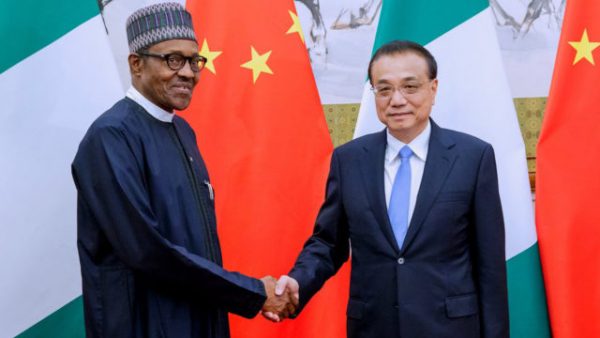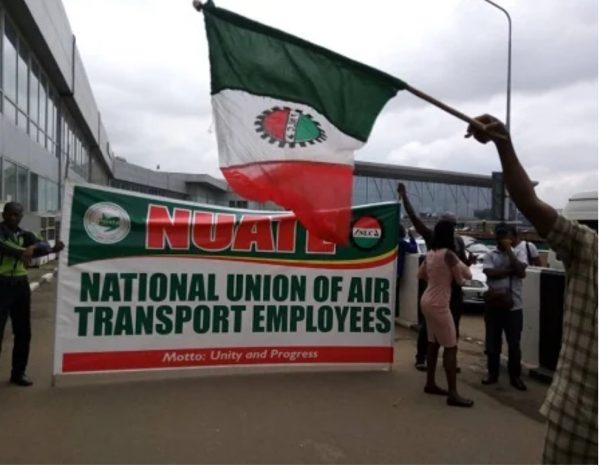Nigeria- China Currency Deal: Nigerian Shippers Become First Casualty As Conspiracy Swirls

- CMA CGM, Chinese partners say, no going back on $400 per TEU
The Nigeria –China Currency Swap deal is beginning to take its toll on the Nigerian economy with the recent arbitrary introduction of $400(N144,000) port congestion surcharge on each 20ft and 40ft container or a TEU equivalent by the French container shipping line, CMA CGM which is in a strong oligopolistic alliance with a Chinese shipping line, China Ocean Shipping (Group) Company.
Recall that the Central Bank of Nigeria (CBN) recently signed a bilateral swap deal with the People’s Bank of China (PBoC) worth $2.5 billion to strengthen the value of naira as the demand for dollar is reduced, thereby encouraging more import from China. 70 per cent of Nigeria’s import was said to come from China even before the deal. This has created more market for the liners to exploit and stimulate a new web of inflationary trend in Nigeria, analysts have said.
This sudden development has elicited industry-wide condemnation from the stakeholders and the regulatory agencies, which have not only threatened to sanction the CMA CGM or any other carrier that will try a similar action, but called for meetings for mutual engagements.
The Association of Nigerian Licensed Customs Agents (ANLCA) and the National Association of Government Approved Freight Forwarders (NAGAFF) on separate notes had warned that they would issue global alert and further boycott the company’s services over the congestion surcharge.
However, for the first time in the history of shipping in Nigeria, the management of CMA CGM Nigeria called their bluff by insisting that it was a corporate decision reached at the international office and any shipper not willing to comply with it could seek alternative carrier at the port of origin.
The shipping company in a circular had stated that the congestion surcharge will take effect from October 15, 2018.
The Managing Director, CMA CGM Nigeria, Mr. Todd Rives said the charge is operation based and was not imposed by CMA CGM Nigeria as a local agent but by the ship owners.
He made the clarification in a statement on Wednesday last week, in which he copied the Managing Director of Nigerian Ports Authority (NPA), the Executive Secretary, Nigerian Shippers’ Council (NSC) and the Association of Nigerian Licensed Customs Agents (ANLCA)..
According to him, the surcharge in question is a prepaid charge payable at the port of origin by the shipper, emphasizing that the shippers can determine if freight payable at origin is acceptable to them and have the right to choose which line they will enter into a contract of carriage with, hence CMA CGM cannot compel them to patronize its services.
“Furthermore, the operational charge is for clarity not applicable to shipments for which a contract of affreightment already exists as freight would have already been agreed before carriage, so no additional retroactive cost can be applied and no such charge is collected from the receivers in Lagos, Nigeria.
“We confirm that no invoice has ever been issued by our local agency CMA CGM Nigeria for this operational charge and this can be verified from your members who are our esteemed customers,” while attributing the surcharge to rise in operational costs and recent service disruption at Nigerian ports.
Investigations by MMS Plus have revealed that the new diplomatic relationship between China and Nigeria has created a confluence of new opportunities for global container shipping carriers to leverage on for recovery after a prolonged business downturn with deep financial distress which had forced them into forming mega alliances and consolidation by way of mergers and acquisition.
It is feared that with the huge control of the Asian shipping market by CMA CGM and its Chinese partners, they have cashed in on the new market opportunities created by the Nigeria China currency swap deal to exploit Nigerian shippers at will, even as it is more worrisome that other shipping lines will toe their line.
Top ten shipping carriers joined forces in three global alliances, down from the previous four at the beginning of 2017. The two new alliances are: the Ocean Alliance and “The” Alliance, which are in addition to the 2M Alliance. The three alliances, which include the top 10 container shipping lines and K-Line- the fourteenth largest container shipping line in the world, collectively controls 77 percent of global container ship capacity, leaving a 23 percent market share for the world’s other container shipping lines.
The shipping alliances are grouped thus: 2M Alliance is made up of Maerskline (merged with Hamburg Sud) and Mediterranean Shipping Company(MSC); Ocean Alliance is the combination of CMA CGM, Evergreen, China Ocean Shipping (Group) Company and Orient Overseas Container Line; “The” Alliance comprises Hapag-Lloyd (with United Arab Shipping Company), Ocean Network Express (K-Line, Nippon Yusen Kabushiki Kaisha, Mitsui Osaka Soshen Kaisha Lines) and Yang Ming controls 21 percent of the global shipping market.
The three alliances also controls as much as 92 percent of all East-West trade, while the Ocean Alliance is the dominant player on the East-West routes, with about 34 percent of total capacity deployed on these trade routes, followed by the 2M Alliance, with a share of 33 percent.
Global shipping experts have reasoned that creating oligopolistic market where a small number of operators reduce competition to maximize excess profits at the expense of consumers is now the end dilemma of the alliances in the global shipping market which originally was driven by consolidation.
Reacting to this, the former President of NAGAFF, Dr. Eugene Nweke said that the economic import of this new tariff is that “In any given voyage of 1000 TEUs vessel capacity, an additional sum of N144,000,000,00 leaves the purchasing power of Nigerian shippers to the French-Chinese shipping line or carrier. The funny thing is that the lines are saying there is no going back on their decision; it is either you comply or no shipping deal. This is the power of comparative advantage at work.”
He said he had lamented about the currency deal between Yuan and Naira and the intrigues that trailed its negotiation. “I was worried because under the prevailing arrangement, we boldly as a nation compromised our local content requirements in terms of local currency undue exposition, unemployment, production and export capacities. This is because what we bring to table of negotiation is gross import volumes, which is a further reduction in our foreign exchange reserve; we only have crude oil export element and the unregulated solid mineral export.”
“The proposition advanced for these negotiations are not too convincing, bearing in mind that trade the components that boost foreign direct investment are: Viable and cheap workforce, enduring, and stable political climate, predictable and reliable foreign exchange rate, dependable transport infrastructure and facilities, among others, which are not readily on ground.
“China, for instance, ship our imports and vessels ship out their exports. Our high volume of import as negotiation tool would have made sense if our national carrier were available and integrated in the outwards and inwards sipping arrangement. But this is not the case.” He added.
However, there is an argument that the shipping companies have justification to introduce such charges following the state of Nigeria’s port access roads coupled with the recent NPA directive that all empty containers should be sent to shipping company’s holding bays rather than the ports.
The Terminal Coordinator of Bollore Transport and Logistics Nigeria Limited, Kirikiri, Mr. Leonard Anyanwu made this assertion when he spoke to our correspondent last week.
According to Anyanwu, ships spend three to four days at the nation’s port while it takes an average of ten days to transport empty containers from holding bays to the ports and the situation has led most shipping companies utilize barges to convey their empty containers to the ports speedily, thereby incurring extra cost.
“The ships are waiting at the ports but the empty containers are on the road. Before the empty containers get to the ports the ships would have gone. Ships can’t afford to wait endlessly because they have other ports to call. Each day they spend at the port means extra cost in demurrage and they have made their projected turnaround time in a year, any extra time at a port could affect the projected income. The solution is to move the empty containers by barges but it is an additional cost to the shipping lines” he said.
Meanwhile, the two companies at the eye of the storm in Nigeria with the new charges, are; China Ocean Shipping (Group) Company and CMA CGM.
They had their respective fiscal challenges in recent times which led to their partnership and they have resolved to take advantage of every opportunity to maximize their income and strengthen their businesses.
For China Ocean Shipping, the net losses of the company amounted to RMB 9.9 billion ($1.45 billion) in 2016, its weakest annual performance since 2005, owing to persistently low freight rates and restructuring costs. Revenue growth generated from the container shipping business segment of the company was lower than growth in container shipping volumes, and the increase in revenue was less than the increase in costs.
In 2015, the company made net profits of RMB 283 million ($41.7 million). In the last quarter of 2016, the company expects to realize operating profits (earnings before interest and taxes) of about RMB 700 million ($10.3 million), not including losses from the disposal of vessels.
On the other hand, CMA CGM’s net losses amounted to $325 million in 2016, compared with $567 million in profits in 2015. The loss rose to $452 million, including the contribution of Singapore-based Neptune Orient Lines, the parent of American President Lines, which it acquired in June 2016.
Operating profits (earnings before interest and taxes) fell from $911 million in 2015 to $29 million in 2016. Transport volumes showed 20.4 per cent growth to 15.6 million TEUs, driven by the acquisition of Neptune Orient Lines, which consolidated the ranking of CMA CGM as the world’s third largest carrier after Maersk Line and Mediterranean Shipping Company.
The average freight rate per TEU increased by 13.6 per cent for the full year, over 2015. Revenue grew 1.9 per cent to $16 billion; excluding the share of Neptune Orient Lines, it fell 14.7 per cent from $15.7 billion to $13.4 billion.
The group deployed its global operating efficiency plan named “Agility” that had led to a 5 per cent reduction of average unit costs in 2016, compared with 2015, excluding the effect of fuel price fluctuation and the company cut cost by $1 billion through December 2017







